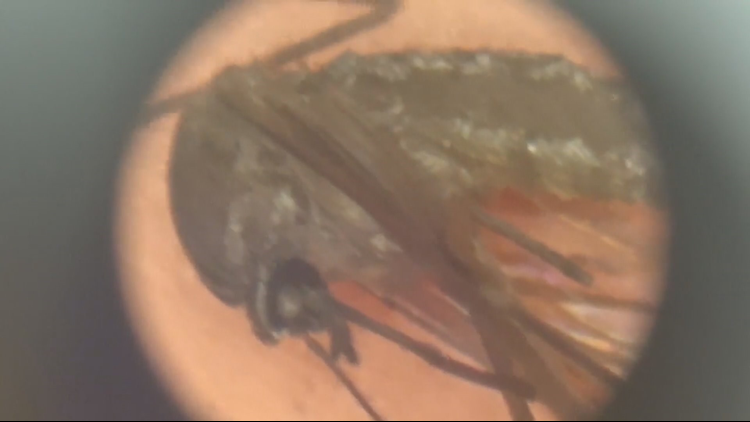EATON COUNTY, Mich. - The first confirmed case of Eastern Equine Encephalitis (EEE) has popped up in Eaton County, according to the health department.
A deer was found back in September and tested positive for EEE. There are no human cases reported in the county as of yet.
The Michigan Department of Health and Human Services (MDHHS) confirms 55 total cases of EEE have been in 17 counties. EEE has been confirmed in 10 humans, and 45 animals.
EEE is one of the most dangerous mosquito-borne diseases with a 33% fatality rate in humans. It is 90% fatal in horses. This year's outbreak has hit Michigan particularly hard. On average, only seven human cases are reported annually across the country.
Aerial spraying treatments in 14 counties were conducted in September to combat the risk of disease. More than 557,000 acres were treated.
How to protect yourself from EEE
Signs of EEE include the sudden onset of fever, chills, body and joint aches. It can develop into severe encephalitis, resulting in headaches, disorientation, tremors, seizures and paralysis. Permanent brain damage, coma and death may also occur.
MDHHS is advising Michigan residents to take precautions against mosquito bites, even though there is a frost predicted in some parts of the state. They offer this advice:
- Apply insect repellents that contain the active ingredient DEET, or other U.S. Environmental Protection Agency-approved product to exposed skin or clothing, and always follow the manufacturer’s directions for use.
- Wear long-sleeved shirts and long pants when outdoors. Apply insect repellent to clothing to help prevent bites.
- Maintain window and door screening to help keep mosquitoes outside.
- Empty water from mosquito breeding sites around the home, such as buckets, unused kiddie pools, old tires or similar sites where mosquitoes may lay eggs.
- Use nets and/or fans over outdoor eating areas.
Mosquito borne illnesses are a risk in Michigan until nighttime temperatures consistently fall below freezing.
"The risk of EEE continues if there has not been a sustained period of freezing temperatures,” said Dr. Joneigh Khaldun, chief medical executive and chief deputy for health for MDHHS. “We urge residents to continue taking precautions against mosquito bites.”
FAQs about EEE and aerial spraying
Other EEE coverage on 13 ON YOUR SIDE:
RELATED VIDEO:
►Make it easy to keep up to date with more stories like this. Download the 13 ON YOUR SIDE app now.
Have a news tip? Email news@13onyourside.com, visit our Facebook page or Twitter. Subscribe to our YouTube channel.




